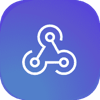Integrate Opsgenie with Webhook

Overview
A URL endpoint can be any platform, web server, and so on as long as the URL is accessible from the Web. Webhook data includes alert activity (create, acknowledge, etc) as well as a subset of the alert fields (alert ID, username, alias, entity, user ID) as part of the HTTP request payload (JSON). You can also define custom headers to add the Webhook call. Send the alert description and alert details by simply selecting the related checkboxes.
The Description and Details fields are truncated to 1000 characters in the alert action data sent by the Webhook integration.
Add a Webhook integration
Go to Settings > Integrations.
Select Add integration.
Run a search and select “Webhook”.
On the next screen, enter a name for the integration.
Optional: Select a team in Assignee team if you want a specific team to receive alerts from the integration.
Select Continue.
The integration is saved at this point.Select Turn on integration.
The rules you create for the integration will work only if you turn on the integration.
Sending alert description and alert details is only available for Create and Custom actions.
Map alert actions
Opsgenie allows you to post Webhook URL for alert actions. Use Post to Webhook URL for Opsgenie alerts section to post alert actions to the given URL. For example, add post to the URL when the alert is created. To do this, define "If alert is created in Opsgenie", "post to url" mapping.
"a tag is added to the alert" and "a custom action is executed on alert" actions differ from other actions. When either action is selected, an extra field appears to enter for which tags or for which custom action this mapping works.
Enter multiple tags by separating the tags with a comma. If multiple tags are entered, the mapping works if the alert has one or more of the specified tags. Leave the tags field empty for the mapping to work for any tag.
If a Opsgenie action is associated with multiple "post to URL" actions in Webhook integration, an error occurs except for the "a tag is added to the alert" and "a custom action is executed on alert" actions. You can save multiple mappings for only these actions, because they differ by the given tags and the given custom action names.
For sample Webhook data for different actions, see Opsgenie Edge Connector alert action data.
Was this helpful?